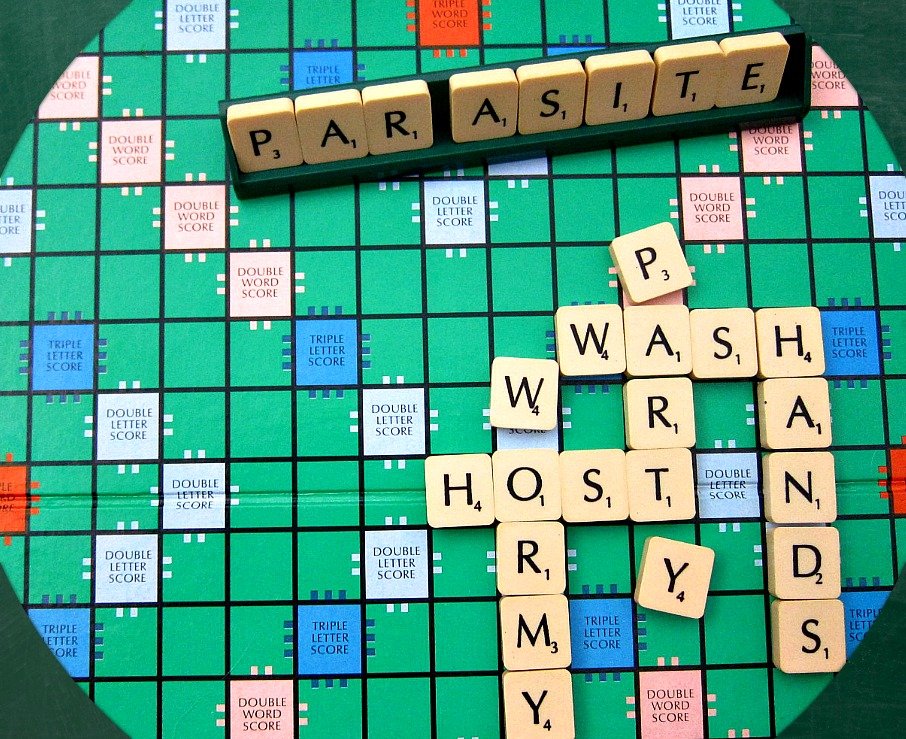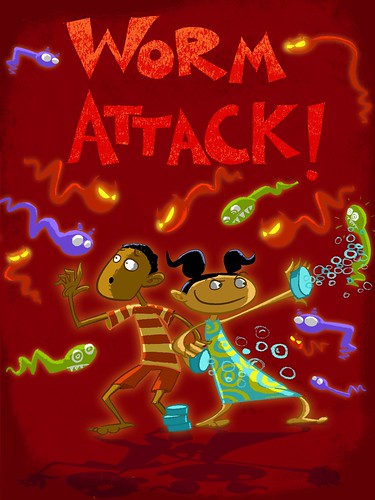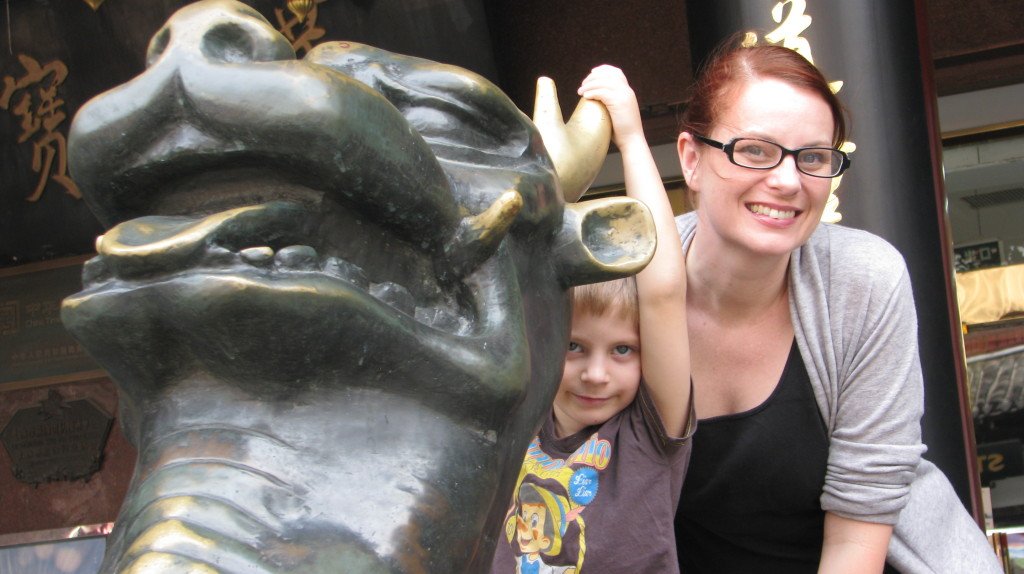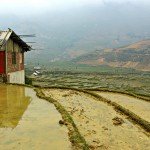This Interview with Danielle Esler talks about the grisly topic of parasites when travelling.
Being a host is fun right – Dinner Party, Airbnb, Couchsurfing Host?
Sure is!
Photo Credit. budgettraveltalk.com
A while back I was talking to a friend who had just returned from a year travelling. He had returned overflowing with smiles and stories, but his frame was a shadow of his pre year-in-the-world body.
Family were openly horrified, while he was secretly pleased with his slim physique, but with pressure mounting he took himself off to a medical professional, returning with a grim face and prescribed treatment.
Imagine his horror when in the ensuing days he peered into the depths of the DUNNY to find a monstrous deceased worm.
Surely an Alien from another planet – but how had it arrived and survived?
While being hosted around the world, it seemed he himself had unwittingly become a host.
So, being a Host is not always fun!
Photo Credit: Flikr Photo by Games for Change/Mudlark
His story started me wondering how many other people returned from their journey, harbouring undesirables.
Deciding the matter needed further investigating, I emailed “Doctor” Danielle from Bubs on the Move. A fellow North Queensland Blogger and medical doctor, with her finger on the pulse of all things medical, family and travel-ly, she had recently returned from a family holiday in China.
In other words, she was perfect for the task.
Meet Danielle
Danielle with one of her Bubs – exploring China. See her tips for visiting China with Children HERE.
Photo Credit Bubs on the Move
Q. Danielle, is it only in the poorer third world countries that picking up intestinal worms is a possibility?
Infection with worms and parasites are common around the world, particularly in developing countries. Although many of these infections only cause mild illness, there are some, such as schistosomiasis* that have long term complications. Another parasite, hookworm is estimated to infect 740 million people worldwide. Hookworm is a cause of illness within Australia, specifically in remote Indigenous communities.
*Us non-doctors may know it as bilharzia – Jan
Q. We can protect ourselves with flu shots and vaccinations against Cholera, Typhoid, and Hepatitis, but what can we do to protect against worms?
While there are no vaccinations against worms and parasites there are some steps that will assist to prevent you becoming infected. These are:
- Visit a doctor at least 6 weeks before traveling internationally to determine whether there are any particular infections you should be wary of on your trip, and specific steps necessary to avoid them.
- Only eat food if it is cooked or peeled. Drink bottled water when traveling and avoid ice cubes.
- Ensure that when you are traveling you wash your hands frequently.
- Keep you hands out of your mouth.
- To avoid hookworm keep your shoes on when walking outside. This worm is spread through soil or sand into the body through the skin.
- If you are visiting a region where schistosomiasis is present don’t swim or bathe in fresh still water.
Q. Are children more likely to suffer from infestation; what are the symptoms; and what can we do to reduce their risk?
Lack of hygiene and play habits make children more vulnerable to parasitic infection. The symptoms of infection with worms and parasites differ depending on the organism involved but the major consequence of hookworm infection is iron-deficiency anaemia. In children, hookworm infection is associated with impaired nutritional status and physical and mental development. Parents traveling with children should supervise them to follow the preventive advice detailed above.
Q. I keep laying hens at home and use a tablespoon of apple cider vinegar in their plastic water container, making their intestines acidic, and in turn repelling worms. Could we humans do something similar to hang out the “Worms Not Welcome Here” signpost?
No “Worms not Welcome Here” signpost is available however individuals with known or suspected parasitic infection should see a doctor as specific treatments are available.
Q. Would using the hand sanitizing gel that is popular today help?
Attention to hand washing is recommended when traveling, with soap and water, particularly before meals and after using the toilet. If clean water and soap is not available a sanitizing gel is an appropriate alternative.
Q. The thought of having these parasites living inside of us is nasty, but can any lasting problems come of it? (apart from the cost of feeding them, that is).
Iron deficiency is an important long term consequence of hookworm infection, but which is relatively easy to treat. Infection with schistosomiasis may cause severe long term consequences including among other things liver disease, bladder cancer and stunting of children.
Thanks for sharing your knowledge on this subject Danielle, and I promise to quiz you about sunny Kuranda, or skiing in China, next time.
Danielle Esler is a medical doctor and mother to two small boys aged 2 and 5, living in North Queensland. With her kids she has travelled to three continents and around much of Australia. She blogs about travel with kids at Bubs on the Move.
Do you have any wormy stories or other gruesome travel tales to share?











An interesting article 🙂 When we lived overseas in developing countries we all four of us took worm tablets regularly, but these days it’s kind of gone off the radar. This was a great informative interview! Thanks Jan and Danielle.
It was off our radar too Jo, until our friend told us his story 🙁
Wow, I was stunned at the 740 million infected world wide stat!! My jaw dropped. I have some friends who will be traveling to Central America and I passing this post along to them 🙂
It is a mind boggling statistic Mike. I always wear shoes because of hookworm myself – can’t bear the thought of them entering through my skin 🙁
Getting worms sounds truly awful – unless you’re dedicated to weight loss…and even then not so appealing. I never swam in lakes in Africa because of the threat of worms and all the advice offered is simple and practical.
I admit Leigh, this is not something I think that much about when travelling, although I think the best piece of advice that Danielle gives is to keep our hands out of our mouths. I try to be mindful of that when I travel, and don’t find it as easy as it sounds 🙁
What a great interview!! I’ve had several friends return from travels VERY ill. Thankfully I haven’t gone through that and I hope I never will. I’m especially thankful for your tip about adding apple cider vinegar to the chook water! I’m going to do that pronto! (Will it work for ducks as well, do you know?)
I don’t know for sure about the ducks but I think it would work Krista. I believe plastic or stainless steel should be used as a water container if using apple cider vinegar as it can react with some metals. Maybe enamel would be OK though.
Thanks for the advice. I’ve heard that some local Malaysians get an annual oral dose of de-worming meds, but I haven’t done it myself or given it to my kids.
I used to occasionally deworm the whole family when the kids were little and we have a dog and cat which I deworm regularly. Maybe you could talk to other expats Michelle and see what they do? Usually all you have to do is take a tablet 🙂
Wow, that’s very educational for travelers. Thank you! Really great interview.
I am glad that you think so Marisol. Danielle was very gracious answering my questions!